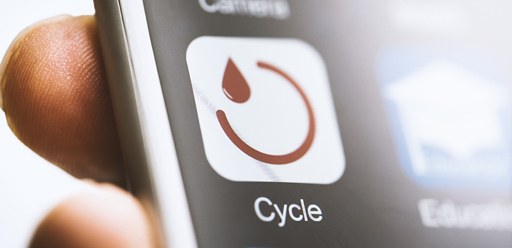Cambridge researchers urge public health bodies like the NHS to provide trustworthy, research-driven alternatives to platforms driven by profit.
Women deserve better than to have their menstrual tracking data treated as consumer data - Prof Gina Neff
Smartphone apps that track menstrual cycles are a “gold mine” for consumer profiling, collecting information on everything from exercise, diet and medication to sexual preferences, hormone levels and contraception use.
This is according to a new report from the University of Cambridge’s Minderoo Centre for Technology and Democracy, which argues that the financial worth of this data is “vastly underestimated” by users who supply profit-driven companies with highly intimate details in a market lacking in regulation.
The report’s authors caution that cycle tracking app (CTA) data in the wrong hands could result in risks to job prospects, workplace monitoring, health insurance discrimination and cyberstalking – and limit access to abortion.
They call for better governance of the booming ‘femtech’ industry to protect users when their data is sold at scale, arguing that apps must provide clear consent options rather than all-or-nothing data collection, and urge public health bodies to launch alternatives to commercial CTAs.



They probably don’t know about it. If I search “period tracker” on Google Play, Drip is in about 40th place in the results. That’s several screens down, past a bunch of search suggestions, and the parts where it’s open source, on-device, and optionally encrypted aren’t clear until I tap on it and read the description.
There’s some irony in a comment dealing with people making decisions that are against their interests because they’re insufficiently informed speculating incorrectly about something like this when it’s easy to check. Drip is, in fact available for iPhone.
The fact that I got 3 responses that stated it is available on F-droid made me think that. F-droid does not have anything iPhone, because you can’t side-load on iPhone.